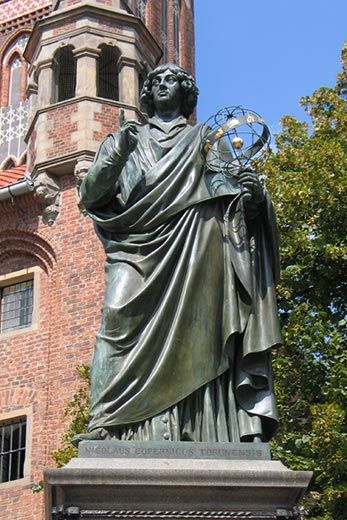The Sights and Smells of Torun
Memoirist Frances Mayes samples freshly baked gingerbread while exploring Copernicus’ hometown on a trip through Poland
/https://tf-cmsv2-smithsonianmag-media.s3.amazonaws.com/filer/Torun-Poland-631.jpg)
My husband, Ed, and I arrive at the super-modern Hotel Bulwar on the Vistula River in Torun after dark. White marble, white leather, white lights dazzle us; we could be awakening in limbo. Our compact, efficient room is neat and tight. We go straight to dinner, rumpled as we are, and the restaurant’s stark black and white décor deserves more glamorous people. “At least we’re in black,” I observe. “When you’re in black you can go anywhere.” We dine very happily on roasted duck and polish off a bottle of wine. In the narrow bed, I dream that I am swimming in the Vistula River. If I had, I probably would have come ashore here quicker than by car.
Because the drive from Krakow was so long, we only have a Sunday morning to wander around picturesque medieval Torun, before driving on to Gdansk. We set out early, walking first along the river and then into the historic center of this gorgeous brick town. Torun’s many intact medieval buildings have earned it a World Heritage site designation and make us feel transplanted back in time. The city was fortunate to have largely escaped the destruction of World War II that devastated so many other Polish cities.
Flower stalls are setting up, and people are pouring into the turreted, Gothic St. Mary’s church built in the 14th century. We go, too. The pews are jammed. Seeing the crowds in Polish churches makes me aware of how unpopulated Italian churches are in comparison. After mass, the Nicholas Copernicus Museum opens. Narrow and upright, with a decorative brick façade, the house where Copernicus was born to a prosperous merchant family in 1473 holds a small collection of memorabilia of the revolutionary astronomer who first saw the sun from these windows, and later pinned that sun to the center of his sky map.
We pass the town library, with sculptures of children reading perched on the windowsills. Many houses, as in Krakow, are decorated with lions, friezes or statues. I spot one of Bacchus, the Roman god of wine and merriment. The great Gothic Town Hall, with a history of being torched, sacked, rebuilt, anchors old town. Nearby, pigeons roost on the monument to Copernicus, which is inscribed in Latin with the slightly odd, “Nicholas Copernicus of Torun, moved the earth, stopped the sun and the sky.”
Torun was a prominent member of the Hanseatic League, an alliance of northern European cities that protected trade routes. During the 14th and 16th centuries, the river port town served as a major shipping center for grain, wood and salt. The Hanseatic influences, resulted in a riot of Flemish, Dutch, Baltic architecture. I love the cutout looking Mannerist and Baroque facades with scrolled tops, elaborate stucco trims, and the complicated patterned brickwork. I can almost see tall-hatted, bearded burghers stepping out of the doorways. Contributing to the illusion, a fair is in progress in the New Market Square: music, many people in costume acting in skits and wandering about looking jolly, and artisans with ceramics, needlework, cheeses and other wares for sale. We’ve stepped inside an Old Dutch Master painting.
Ah, a gingerbread baker! Torun must be the gingerbread center of the universe. All over town, it’s sold in decorative molded forms, both for ornaments and for eating. The baker at the fair launches into a long explanation, but when he realizes we don’t understand a word, just hands me a piece. We buy some of both kinds in the shapes of castles and local houses. I hate to bite the turrets but gingerbread is a favorite of mine for its old world taste, a flavor evocative of the spice trade that made this part of the world rich and its towns elegant.
So much more to see: the atmospheric 13th-century Church of St. John, the magnificent geometry of the granaries, the medieval gates leading to the Vistula, and the broad river itself, lending access to the Baltic and trade routes, of course, but also lending so much beauty. Torun is a gem, a place to revisit on nights of insomnia: a bonus of travel. I could walk these streets forever.
